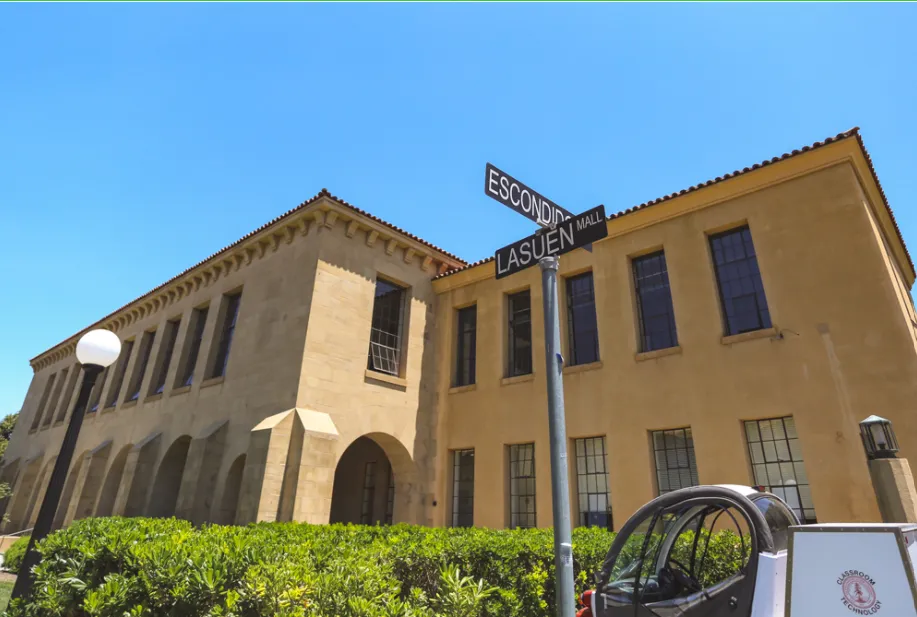Table of Contents
California Governor Gavin Newsom recently signed AB 101, a bill requiring high school students in California to take an ethnic studies course to graduate high school.
This has been a controversial idea in California for a long time. Newsom’s predecessor, Jerry Brown vetoed a similar measure in 2015; in 2020, Newsom himself vetoed an earlier version of AB 101 after Jewish groups said the law had anti-Semitic elements.
So, why did AB 101 make it through this time around? On Friday, October 8, when the bill was signed, Governor Newsom’s office cited research conducted by Thomas Dee, a professor at Stanford’s Graduate School of Education. Dee’s work claims to show that ethnic studies classes “help expand educational opportunities in schools, teach students about the diverse communities that comprise California, and boost academic engagement and attainment."
These are lofty claims for any scientific study to make, and I was immediately skeptical. In recent years, “scientific” studies have been used to justify everything from critical race theory to the elimination of advanced math classes in high school. There is a dangerous conveyor belt carrying dubious academic studies in the “social sciences” directly from universities to legislative bodies.
But Dee’s paper was published in the Proceedings of the National Academy of Sciences (PNAS), which is one of the most prestigious scientific journals in the world. So I decided to read the study with an open mind.
What I found disappointed me. The study’s conclusions are narrow and apply only to a very specific student subgroup. In 2010, the San Francisco Unified School District (SFUSD) started an ethnic studies pilot project that automatically assigned a group of low-performing 9th grade students to an ethnic studies course. Students were placed in this category if their 8th grade GPA was under 2.0.
Dee and his colleagues tracked this group, which is obviously not representative of the average California high school population. As a result, while the study did find a statistically significant link between participation in 9th grade ethnic studies and improved high school graduation, this conclusion may only be applicable to students near the 2.0 GPA threshold. Moreover, the demographics of the student sample in Dee’s study were highly skewed, especially with regard to ethnicity. Sixty percent of the students in the sample were Asian. For context, the latest data shows that statewide, only about 9.3% of public school students in California are Asian.
Using these limited results to justify an ethnic studies requirement for all California high school students is foolish. But don’t take my word for it: the authors themselves qualify their results, writing that “because this research design leverages the targeting of the course to academically at-risk students, our inferences may not generalize to students who had higher grade 8 GPAs.”
They go on: “Mandating the wide-scale availability of ES [ethnic studies] through policy without thoughtful curricular development and teacher training may not reproduce the educational gains we document here.” For anyone who has followed the drama surrounding the development of California’s ethnic studies curriculum, the process has been anything but thoughtful. Previous versions of the proposed curriculum were widely criticized for being anti-Semitic, and students were expected to memorize terms such as “cisheteropatriarchy” and “hxrstory”, while learning that capitalism is a form of power and oppression.
The curriculum was revised, but the latest version isn’t much better. The list of sample lessons released by the California Department of Education, which includes titles such as “Native American Mascots” and “Afrofuturism: Reimagining Black Futures and Science Fiction”, reads more like a critical race theorist’s Christmas wishlist than a thoughtfully developed academic plan.
Despite the clear limitations of Dee’s study, Governor Newsom, other Democratic lawmakers in California, and an entire phalanx of education policy researchers quickly seized on the passage of AB 101 and described it as a victory for evidence-based research. The bill is actually the opposite of evidence-based research informing policy: it represents a gross misinterpretation of academic results intended to lend scientific legitimacy to a political project. Dee’s study clearly focused on poorly-performing and mostly Asian students. While it may be the case that these students benefited from the curricula in his study, using this research to justify a statewide requirement is a serious stretch, especially in light of the ridiculous curriculum the State actually plans to use.
The American public is right to distrust politicians who indiscriminately appeal to our expert class in order to craft “objective” justifications for their ideas. So, the next time you see a policy justified with academic research -- especially in the social sciences and humanities -- think twice about what the research actually says and decide for yourself whether the conclusions justify the proposed intervention. In too many cases, it’s easy to see that they do not.





